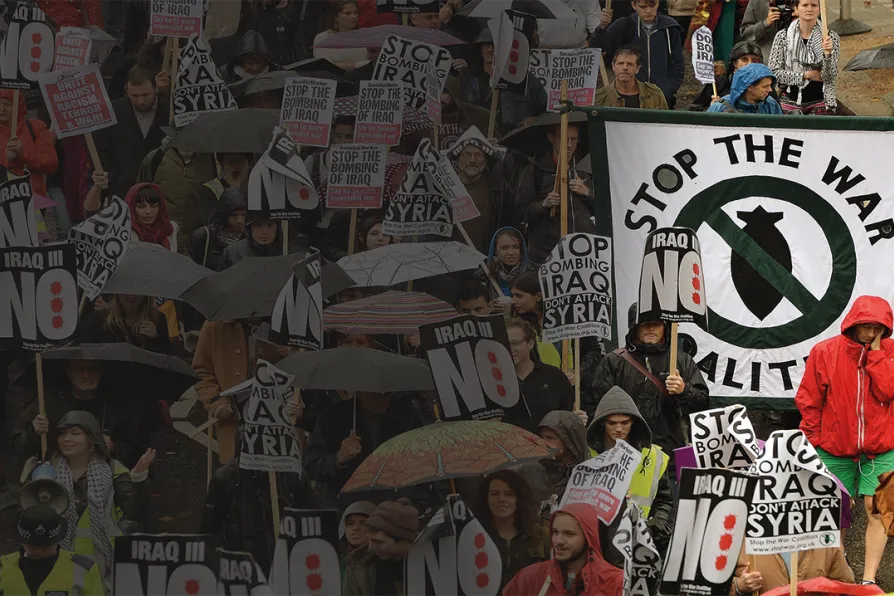Hundreds protested against the US-Israel attacks on Iran in Parliament Square on Saturday, fearing a wider conflagration and horrified by the targeting of young schoolchildren, writes LINDA PENTZ GUNTER


THOUGH considered an abject failure by many, the enormous British anti-war movement against the 2003 Iraq War has had a number of long-lasting impacts on British politics and society.
One unfortunate effect is, nearly 20 years later, the movement’s inability to stop the invasion continues to breed defeatism when it comes to the general public influencing British foreign policy.
For example, discussing the large-scale British protests against the recent Israeli bombardment of Gaza, one Middle East scholar quipped on Twitter, “If history has taught me anything, when people in Britain march against immoral actions in the Middle East, their government will almost certainly ignore them.”

SOLOMON HUGHES explains how the PM is channelling the spirit of Reagan and Thatcher with a ‘two-tier’ nuclear deterrent, whose Greenham Common predecessor was eventually fought off by a bunch of ‘punks and crazies’

While Hardie, MacDonald and Wilson faced down war pressure from their own Establishment, today’s leadership appears to have forgotten that opposing imperial adventures has historically defined Labour’s moral authority, writes KEITH FLETT

As the cover-ups collapse, IAN SINCLAIR looks at the shocking testimony from British forces who would ‘go in and shoot everyone sleeping there’ during night raids — illegal, systematic murder spawned by an illegal invasion











